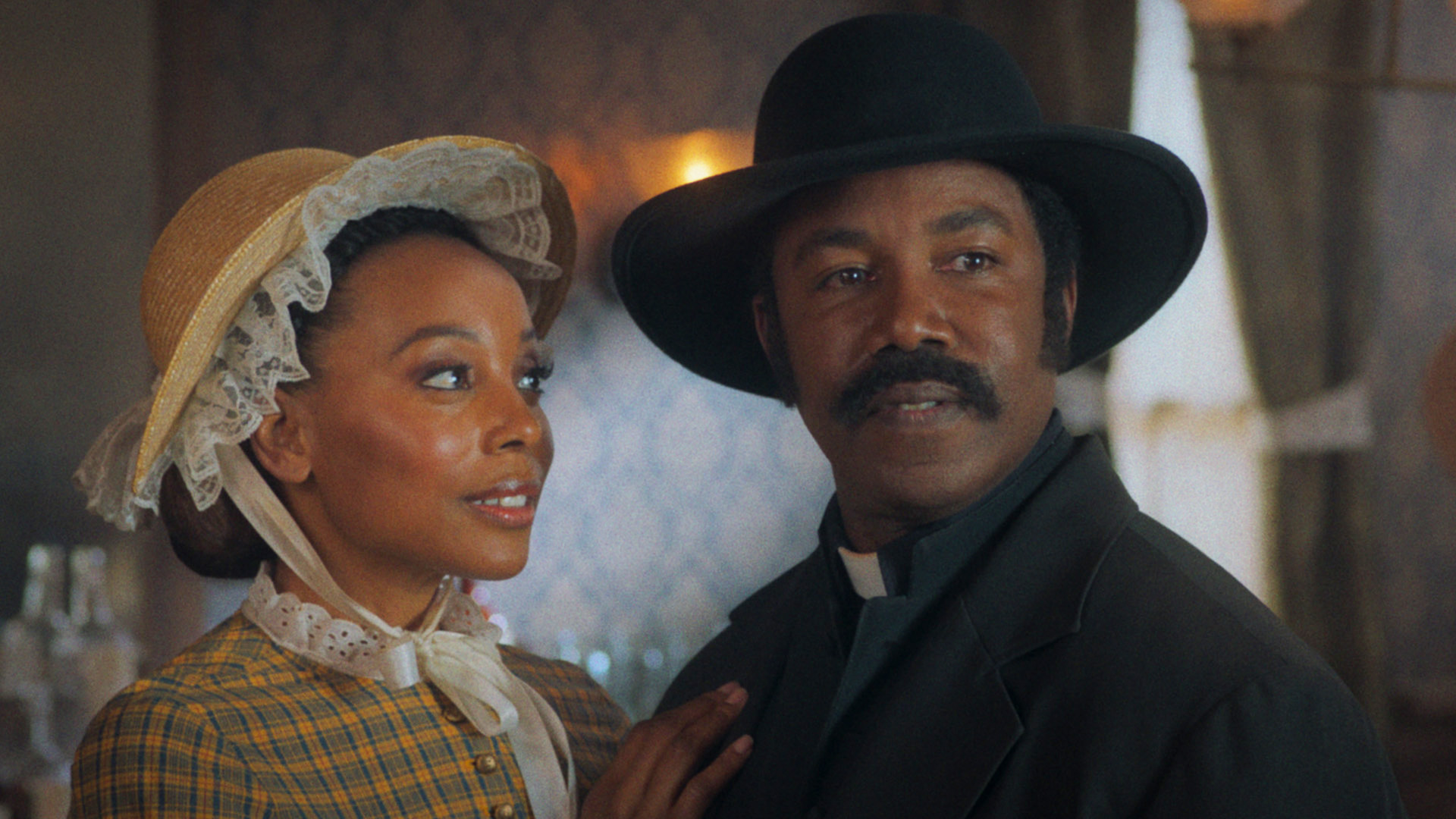
Black Dynamite has grown to become a cult classic in film circles with the blaxploitation parody spinning off into a cartoon show amidst its success. The team behind the film is back with Outlaw Johnny Black, a play on classic westerns directed by and starring Michael Jai White.
Cowboy Johnny Black (Michael Jai White) is roaming the Wild West in search of vicious fellow outlaw Brett Clayton (Chris Browning), the man responsible for the death of his father Bullseye (Glenn Turman). As he seeks out his enemy, he finds himself an outlaw and soon encounters Reverend Percy (Byron Minns) on the western frontier. After the two are jumped by Natives, Johnny assumes Reverend Percy’s identity and lands in Hope Springs, a small mining town that’s been targeted for take over by notorious land baron Tom Sheally (Barry Bostwick). Johnny attempts to help the town’s leader Jessie Lee (Anika Noni Rose) stave off the takeover while keeping to his own plan for revenge.
The first instinct of many viewers will be to view Outlaw Johnny Black as the spiritual sequel to Black Dynamite considering that much of the talent behind that film returns here. Discounting the inherent unfairness and folly of expecting a duplicate of a widely beloved cult classic, creatively Outlaw Johnny Black eschews the parody of its production predecessor in favor of a western with a story to tell that only occasionally dips its toe into the comedic space. What we are treated to instead is a revenge film that explores the folly of being consumed with vengeance; pontificating on forgiveness in a religious context. Johnny is consumed with avenging the death of his father, traveling the ends of the West in order to find his killer and stepping over anyone who gets in the way. As Johnny interacts with the people of Hope Springs, mainly Jessie Lee, he comes to realize the futileness of holding onto grudges, how they actually impede happiness and good fortune, and how they come to cause people to hurt not just others but also themselves. This conclusion is drawn not just moralistically, but religiously as Johnny is forced to immerse himself in Christianity at depth he most likely hasn’t since the death of his preacher father. It manages to interweave its religious explorations subtly without feeling like an overt endorsement at all, a natural inclusion that comes from the established background of its characters and setting rather than something preachy.
While subtle, the film’s comedic bits are still and are still chuckle worthy. This includes well done sight gags such as when Johnny’s horse dies in the desert as they search for water, and finally find it, only for the horse to keel over and literally kick the bucket. Those audience members expecting a barrel of laugh-out-loud moments may want to temper their expectations however as the comedy takes a backseat to the story. This decision isn’t entirely bad for the film as the performances of the cast work for the most part and Jai White works as a leading man. The film’s two-hour and fifteen minute runtime does begin to show toward the end of the third act, but an ambitious large fight scene that Jai White pulls off while in the director’s chair ties all of the film’s threads together and offers a satisfying conclusion. Outlaw Johnny Black is a departure for Michael Jai White, but a largely successful one.
Image: Samuel Goldwyn Films

